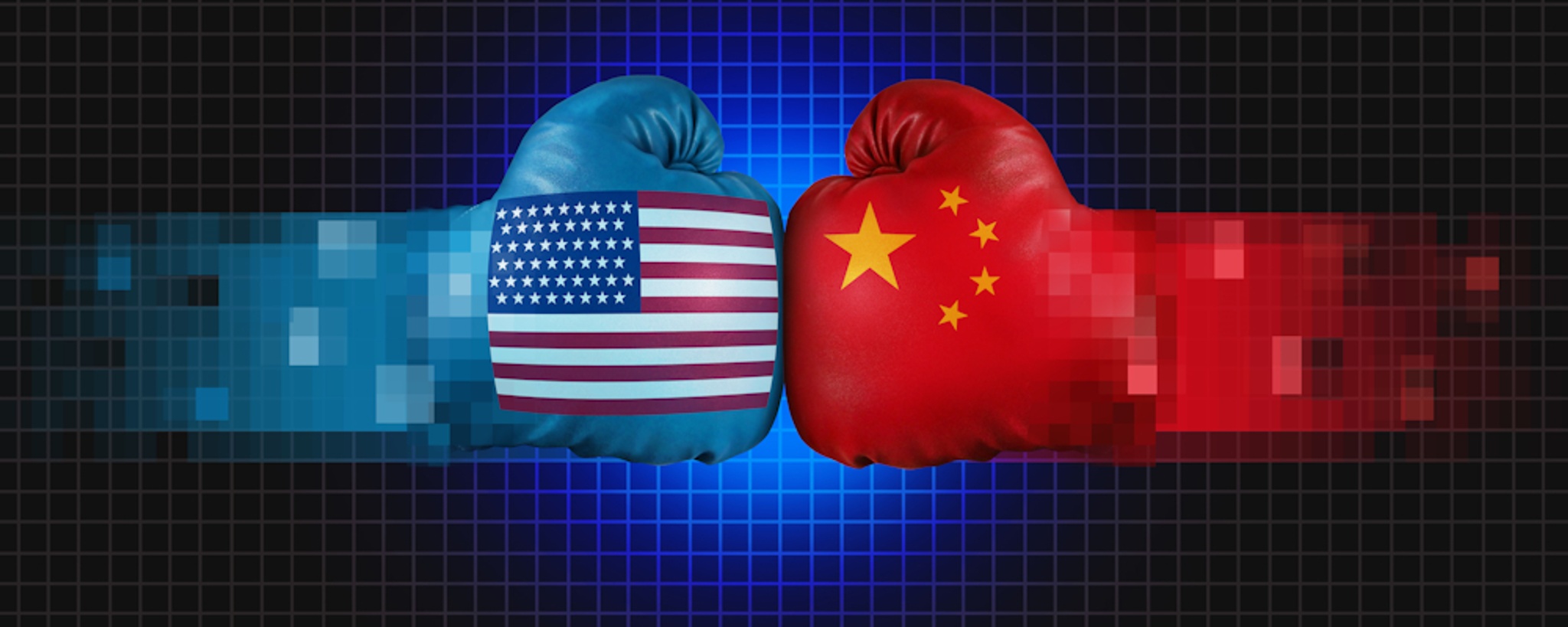Big Tech Policy
Navigate forward to interact with the calendar and select a date. Press the question mark key to get the keyboard shortcuts for changing dates.
Navigate backward to interact with the calendar and select a date. Press the question mark key to get the keyboard shortcuts for changing dates.
ITIF’s Aegis Project for Defending U.S. Technology Leadership is dedicated to helping the United States prevail in its techno-economic power struggle with China by identifying and opposing domestic and international laws and regulations that undermine the competitive position of major U.S. tech companies. Policymakers must understand that limiting attacks on U.S. tech leaders is critical for America’s global power and leadership.

Vice President and Director, Center for Data Innovation
Information Technology and Innovation Foundation
Read BioFeatured
More Publications and Events
March 2, 2026|Blogs
Why the EU's Push to Open WhatsApp to Third-Party AI Assistants Threatens American Technological Leadership
The European Commission is challenging Meta’s decision to restrict third party AI assistants on WhatsApp, arguing it may violate competition rules. The argument here is that forcing Meta to open its platform would undermine its vertically integrated AI model, weaken incentives for continued investment, and introduce security and operational risks. At a critical moment in global AI competition, such regulatory actions could slow innovation at a leading American firm and advantage foreign competitors.
February 17, 2026|Podcasts
Creative Discussion Podcast: Alden Abbott on the Chicago School, the Neo-Brandeisian Experiment, and the Future of Conservative Antitrust
Joseph V. Coniglio hosts the second episode of a new antitrust speaker series and interviews Alden Abbott, senior research fellow at the Mercatus Center at George Mason University and an advisory board member of the Antitrust Education Project. They discuss antitrust’s Chicago Revolution, Neo-Brandeisian enforcement, and the Google & Meta cases.
February 13, 2026|Blogs
How Foreign Non-Tariff Attacks Threaten American Innovation
Global trade is evolving into a form of mercantilist economic warfare where foreign nations use discriminatory regulations to target the U.S. tech sector, draining its wealth and undermining American innovation.
February 6, 2026|Blogs
Washington Should Draw a Line in the Sand on Korea to Defend U.S. Tech Leadership
The House Judiciary Committee has launched an investigation into South Korea's discriminatory targeting of U.S. tech companies, particularly Coupang, marking an important escalation in Washington's pushback against non-tariff attacks that use regulatory measures to weaken American technology leadership. These attacks—which have cost U.S. tech companies over $30 billion globally in the past decade—disproportionately target American firms through fines, operational restrictions, and forced infrastructure investments while creating openings for Chinese competitors.
February 6, 2026|Blogs
Europe’s DSA Puts an Unfair Target on American Tech Companies
The EU’s Digital Services Act (DSA) imposes the heaviest regulatory burdens on large platforms in a way that overwhelmingly targets U.S. technology companies, exposing them to disproportionate compliance costs and fines while largely sparing European firms. This discriminatory model functions as a non-tariff attack that risks weakening U.S. innovation and competitiveness, and is now being replicated globally, amplifying the strategic challenge for American tech leadership.
February 5, 2026|Testimonies & Filings
Coalition Letter Requesting Trade Subcommittee Hearings on Non-Tariff Attacks Against US Technology Companies
NTAs restrict U.S. firms’ ability to innovate and compete on level terms, undermining U.S. technology leadership, economic strength, and national security in the geostrategic competition with China. Congress and the Administration need to have policy tools at their disposal to identify, document, prevent, and respond to these measures.
January 21, 2026|Blogs
Korea’s Proposed Fairness Act: Will It Discriminate Against American Firms?
The Korea Fair Trade Commission's past enforcement against U.S. technology firms justifies concerns that the proposed Fairness Act will reflect de facto discrimination against American commerce.
January 16, 2026|Blogs
Big Tech Is Not the “Main Enemy”: Techno-Nationalist Opposition to America Is Nothing New
In every wave of U.S. industrial leadership, other nations have attacked American multinationals, especially tech firms, for blatantly protectionist reasons.
December 24, 2025|Op-Eds & Contributed Articles
Why the EU’s Google Antitrust Case Is Misplaced in the AI Era
The EU’s latest antitrust investigation against Google misreads competitive AI markets, risks politicized enforcement, and could heighten transatlantic tensions amid intensifying U.S.–China technological rivalry.
December 22, 2025|Blogs
Korea’s “Online Platform Fairness” Bill Risks Becoming a Digital Non-Tariff Barrier
If South Korea seeks a globally credible competition law framework, it should avoid implementing a model of digital antitrust regulation that is, in many ways, even more intrusive than the EU's Digital Markets Act.







